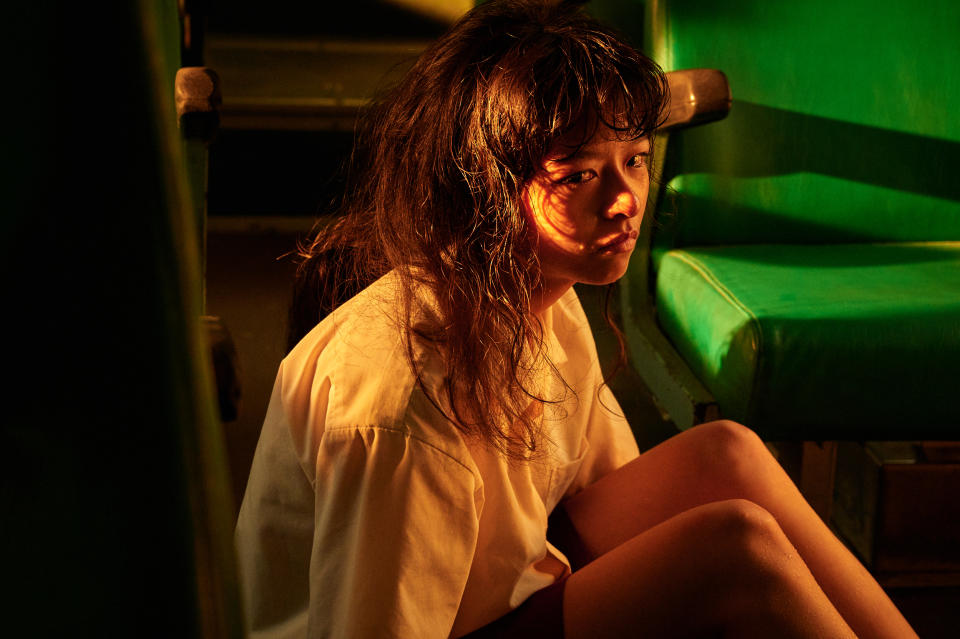REVIEW: The Silent Forest a dark tale that highlights discrimination faced by the deaf

Rating: M18 (Sexual violence)
Length: 108 minutes
Director: Ko Chen-nien
Cast: Liu Tzu-chuan, Chen Yan-fei, Kim Hyunbin, Liu Kuan-ting
4.5 out of 5 stars
The Silent Forest centres around a school for deaf students, with Chang Cheng (Liu Tzu-chuan) as the transfer student, Bei Bei (Chen Yan-fei) as the girl he has a crush on, and Xiao Guang (Kim Hyunbin) as their schoolmate. On the surface, everything seems to be fine.
But beneath this facade is a deadly “game” taking place unbeknownst to the teachers – a game involving sexual abuse among students.
Before Chang Cheng settles down in his new environment, he accidentally witnesses the “game” taking place in the last row on the school bus, with Bei Bei as the victim. Overcome by fear and shock, he is torn between revealing the cruel truth about the game to the teacher, or joining in out of peer pressure. To make things worse, Bei Bei encourages him to bully her with ringleader Xiao Guang and the others, so that he will not be ostracised.

Ultimately, Chang Cheng and Bei Bei muster their courage to come clean to their teacher Wang Da-jun (Liu Kuan-ting). But little do they know this revelation opens the Pandora’s box of even more twisted and sick events ongoing and prior to the game.
Before we dive deeper, you should know that this is by no means a feel-good film. In fact, because The Silent Forest is based on true events, you will feel perplexed and possibly disturbed that such atrocious things are happening somewhere in this world — not just in Taiwan. Some may even find this Taiwanese film similar to Korea’s Silenced (2011) starring Gong Yoo.
With great acting from the budding actors and an intriguing plot that covers multiple thought-provoking social issues, The Silent Forest is easily one of the best productions from Taiwan in recent years. The fact that the film is nominated for eight different categories in the Golden Horse Awards this year — Ko Chen-nien for Best New Director, Kim Hyunbin for Best Supporting Actor, Chen Yan-fei for Best New Performer, Best Original Screenplay, Best Original Film Score, Best Art Direction, Best Sound Effects, and Best Film Editing — is proof of the film’s astounding qualities.
One of the social issues in The Silent Forest is the discrimination that those who are hard of hearing face. In various scenes, “normal” people are pictured as unkind to Chang Cheng and Bei Bei, criticising them despite their inability to hear or defend themselves. More often than not, due to the language barrier, they are misunderstood and put at a significant, unfair disadvantage. It is heart-wrenching to see the lack of compassion and acceptance in the society, although these scenes are possibly exaggerated to emphasise the discrimination.

Even though there is relatively little spoken dialogue, with the bulk of the dialogue being performed in sign language, the plot still remains engaging, if not more so, as the audience has to pay attention to the subtitles on top of the acting. That is, unless you understand sign language.
The lines (in sign language as well) “they are only playing” or “let’s play” also come up multiple times in the film. But can serious events be covered up or ignored just by saying it is only a game? It is equivalent to verbally attacking someone and later saying it is only a joke, which is not funny. Who would know what kind of repercussions will evolve from there? The butterfly effect is eventually made apparent when the mastermind is revealed.
If there is anything to nitpick about the film, it is that the ending could have explained the severity of the penalties, as opposed to “the perpetrators have been caught”, so as to reduce and hopefully eliminate such perverse incidents.
Although watching The Silent Forest left me exasperated at the inaction of some adults who choose to turn a blind eye to the children’s desperate calls for help, it is definitely a film worth recommending to everyone. Just be prepared to feel the saddening injustice these deaf students face, especially when Chang Cheng tries to say, “We’re not the bad guys.”
Release date: 5 November 2020 (Singapore)



